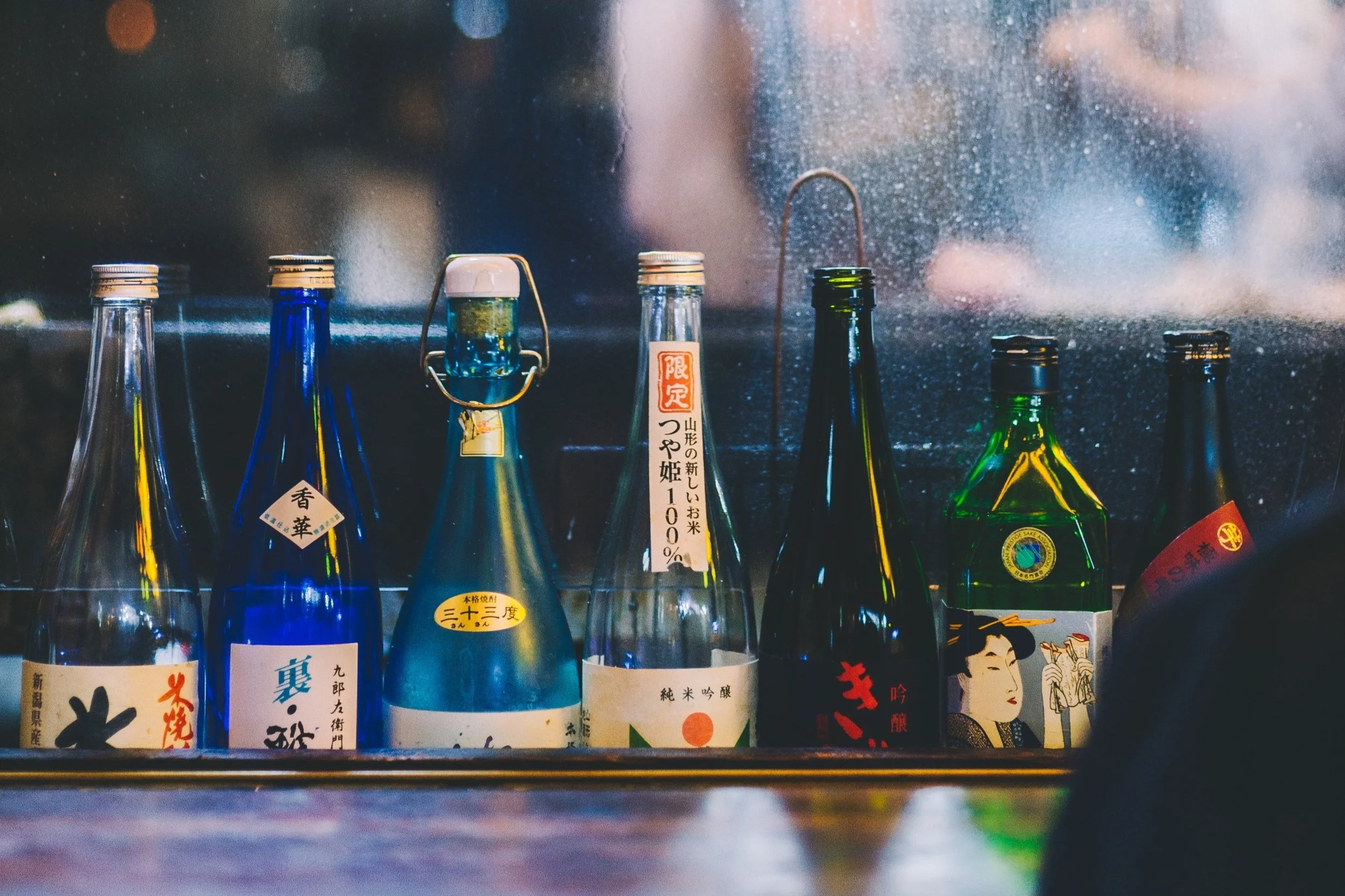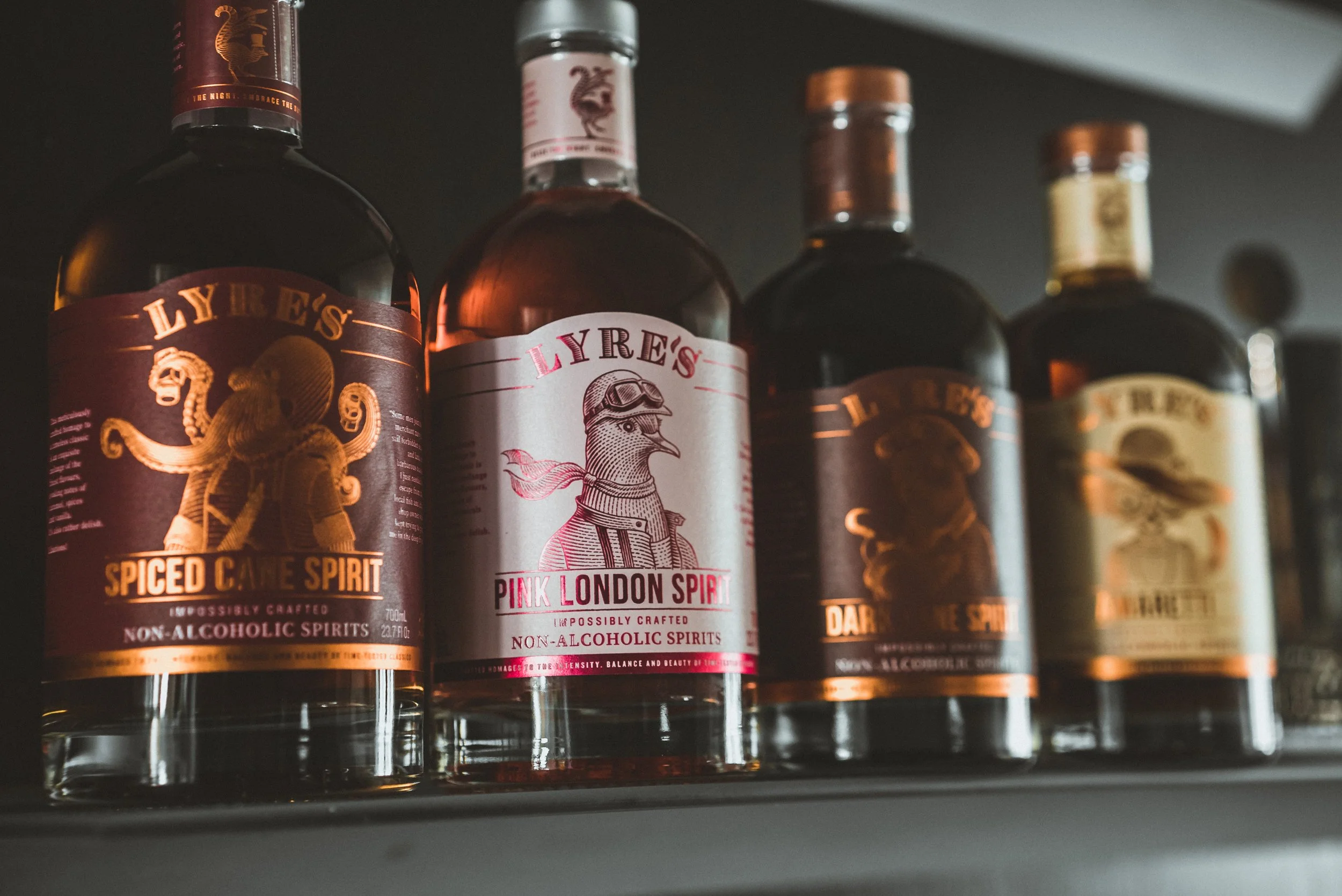Starting A Sake Brand | The Research begins

Article written by guest author Peter Brooker
Call me crazy, but I'm thinking of starting a Sake brand I wanted to share some thoughts and research as to why I think it would be a good idea. I've started this journey because I fell in love with the Sake drink on a recent cruise around Japan. My girlfriend and I enjoyed probably way too much Sake both on the boat and inland, and when we came back to the UK found that Sake wasn't as easy to come by as many alcoholic beverages.
There are some online retailers doing special orders like LondonSake for example, but I'm not seeing it on the shelfs and my local mini-mart. Likewise no one seems to be asking for it in my local pub. Except my girlfriend and I of course. Other outlets FYI, Asian Supermarkets, Japanese Restaurants, Wine and Spirits Wholesalers.
When purchasing sake, consider the type of sake you prefer, such as Junmai, Ginjo, Daiginjo, or Nigori, as well as whether you want it in a bottle or a box. The Sake production industry is still relatively small and emerging. Sake production traditionally requires specific rice varieties and water sources, which are not abundant in the UK. However, some individuals and businesses were experimenting with sake production using local resources and adapting the process to the UK climate.
Whilst Sake has a growing presence in some upscale restaurants, bars, and specialty liquor stores, especially in larger cities like London. However, it was still considered a niche product compared to more established alcoholic beverages.
What Sake Brands are well known in the UK?
What is my competition going to be? What do the bottles look like? How much Sake can I make in my basement before my girlfriend begins to notice the smell? All very important questions, but let’s start with the first. Some well-known and respected sake brands that were available in the UK at that time included:
1. Gekkeikan: This is one of Japan's oldest sake producers and is known for its consistent quality.
2. Hakutsuru: Hakutsuru is a widely recognised sake brand, known for its approachable and accessible sake varieties.
3. Dassai: Dassai is known for producing premium sake, including Daiginjo, one of the highest quality sake types.
4. Tengumai: Tengumai is known for its rich, full-bodied sake, often enjoyed with traditional Japanese cuisine.
5. Nanbu Bijin: Nanbu Bijin is known for its high-quality, well-balanced sake varieties.
Huge obstacles lie ahead for anyone that wants to start their own alcoholic beverage brand. Whilst I'm looking forward to the tasting sessions immensely, there are some key considerations and steps to keep in mind before launching your brand.
1. Market Research: Understand your target market and its preferences. Identify gaps in the market that your product can fill. Analyse your competition, including established brands, to determine your unique selling points. That might mean I'll have to try every available bottle of sake on the market. One rises to meet a challenge.
2. Legal Regulations: Familiarise yourself with the extensive legal regulations and licensing requirements for alcohol production and distribution in your country. These regulations can vary significantly by region. This scares the life out of me in truth. I've done some quiet digging already but will get onto that later.
3. Business Plan: Create a comprehensive business plan that outlines your brand's goals, budget, production process, distribution strategy, and marketing plan. Budget is shoestring, the goals are world domination.
4. Production Facility: Secure a suitable location and equipment for production. This can be a brewery, distillery, or winery, depending on your chosen beverage. I was thinking my shed for starters.
5. Branding and Packaging: Create a memorable brand name, logo, and packaging design that resonate with your target audience. Comply with labelling regulations, which often include specific information about alcohol content and health warnings. So I have an idea for the brand but I don't want to give too much away right now. Labelling regulations?? God already there is a lot of red tape. I can't just stick a photo of Sean Connery drinking Sake ala You Only Live Twice?
6. Distribution Strategy: Plan how you will distribute your products. Options include selling directly to consumers, through wholesalers, or via partnerships with retailers and restaurants. I have plenty of mates who like a drink, shouldn't be a problem.
7. Marketing and Promotion: Develop a marketing strategy that includes online and offline marketing, advertising, social media, and public relations. Ensure your marketing materials adhere to alcohol advertising regulations. More regulations? Don't you miss the good old days when we didn't have to tell folk to drink sensibly?
8. Compliance and Licensing: Obtain all necessary licenses and permits, which may include federal, state, and local approvals. Comply with tax regulations and alcohol labelling requirements. OK now we have TAX regulations. Can a man not make some moonshine in his shed and crack on with life?
You get the idea. Lots of rules. Starting an alcohol beverage brand is a complex and highly regulated process. Consulting with experts in the alcohol industry, including legal advisors and experienced beverage producers, is crucial to navigate the intricacies of the business successfully. Additionally, patience, dedication, and a commitment to quality are key to building a successful brand in this competitive industry.
How about the distribution, what are the rules for distributing alcohol in the UK?
Distributing alcohol in the United Kingdom involves compliance with a range of regulations, which are primarily governed by the Alcohol Wholesaler Registration Scheme (AWRS) and overseen by HM Revenue & Customs (HMRC). Here are some key regulations and considerations for alcohol distribution in the UK:
1. Alcohol Wholesaler Registration Scheme (AWRS): To distribute alcohol legally in the UK, you must be registered under the AWRS. Registration is mandatory for businesses involved in selling or distributing alcohol at wholesale, including importers, producers, and distributors. Had a quick look on the site, looks free to apply at least.
2. Licensing and Permits: Ensure that you have the necessary licenses and permits, such as a premises license or personal license, depending on your specific role in the distribution process. Licensing laws can vary between England, Scotland, Wales, and Northern Ireland, so be aware of the specific regulations in your area. Will look into this more further down the road. I did pass an NVQ in hospitality when I worked in a bar years ago. Which meant I could legally sell booze on the street if I wanted to. Doubt it's still valid mind.
3. Record Keeping: Maintain accurate records of all alcohol transactions, including purchases and sales. These records should be kept for a minimum of six years. Looks like I'll need another shed just for the paperwork. Jesus.
4. Supply Chain Verification: Verify the legitimacy of your suppliers and customers to prevent involvement in illegal or counterfeit alcohol trade. But what if the supply chain is just me? Hmmm further research needed.
It's essential to stay updated on any changes in alcohol distribution regulations, as they can evolve over time. Failing to comply with these regulations can result in fines, legal repercussions, and damage to your business's reputation. Consulting with legal and regulatory experts who specialise in alcohol distribution can help you navigate the complex regulatory landscape and ensure compliance with all requirements.
Lastly is Sake popular in the UK? How about Sake cocktails?
Sake cocktails are not as common in the UK as traditional cocktails made with spirits like gin, vodka, or whiskey. Sake is primarily enjoyed in its traditional form as a standalone beverage, served warm or cold, or as an accompaniment to Japanese cuisine. However, the popularity of sake cocktails has been growing in recent years due to the increasing interest in Japanese culture and cuisine. Some bars and restaurants, particularly those with a focus on Japanese or Asian-inspired drinks and cuisine, have started to offer sake-based cocktails on their menus.
There is a new one called MOTO in Covent Garden opposite Rules Restaurant. Moto delivers artisan beverages direct from small yet passionate producers throughout Japan in the heart of London’s Covent Garden.
The popularity of sake cocktails may vary by region and the availability of sake-focused establishments. To find sake cocktails in the UK, you can explore Japanese or Asian-themed bars and restaurants, as they are more likely to feature a selection of sake-based drinks. Additionally, the craft cocktail scene continues to evolve, and bartenders may experiment with sake in their creations, contributing to the growing popularity of sake cocktails.
So this is where I leave you with chapter one of my Sake Brand Journey. I hope there will be a chapter 2 and I won't just continue procrastinating in verbiage. Written form I'll make allowances for. Sayōnara for now.
Cover Photo by Manuel Cosentino on Unsplash
Founder of this eponymous blog, focusing on men's fashion & lifestyle.







